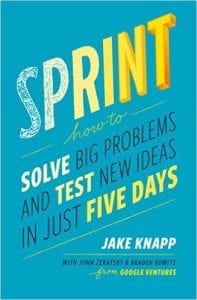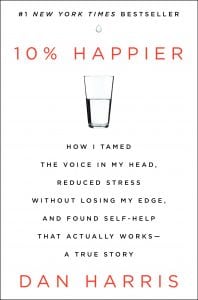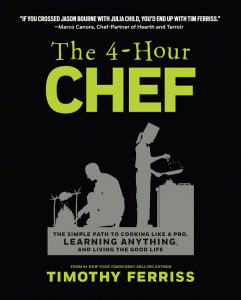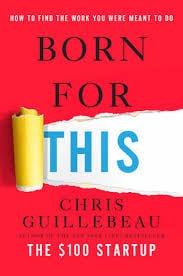Does your goal inspire immediate action?
Establish a Higher Standard for Yourself
Develop a higher standard for yourself by establishing a feeling or image of someone you aspire to be. As Arnold Schwarzenegger says: “Dig deep down and ask yourself ‘who do you want to be?’ Not what, but who.” It need not be a specific person. Arnold’s standard was simply being: ‘The best bodybuilder of all time.’ He lived that standard every day until the reality matched his results.
Once you establish your standard, strip all the emotion out of it. Make it simply who you are, not who you hope to be. Become indifferent to any other way of being. This makes your brain want to quickly bridge the gap between your current reality and who you know yourself to be, thus making you more likely to take immediate action.
Challenge Yourself With Something BIGGER
In the book, ‘The Magic of Thinking Big’, author David Schwartz explains the advantage of thinking big:
Big thinkers are specialists in creating positive, forward-looking, optimistic pictures in their own minds and in the minds of others.” – David Schwartz
Without big goals you’ll avoid taking the first step towards achieving something great.
Think little goals and expect little achievements. Think big goals and win big success.” – David Schwartz
Big goals are useful because they come equipped with a great fall back plan.
Shoot for the moon. Even if you miss, you‘ll land among the stars.” – Norman Vincent Peale
Modify your goal until it inspires action.
Remember: It’s not what a goal is, it’s what a goal does.
Envision the Obstacles You’ll Overcome
Envision the act of overcoming obstacles along the way. See the act of overcoming obstacles as enjoyable.
The best way to get people up and moving was to ask them to dream and then to confront them right away with the realities that stood in the way of their dreams.” – Gabriele Oettingen
Therefore, once you establish your higher standard (step 1) and aim for a BIG result (step 2), envision yourself overcoming obstacles you’re likely to face. Doing so will make you more resilient when setbacks occur and less afraid of falling short of your goal, thus making you more likely to take action.
What harsh realities are you likely to face? See those obstacles as a chance to show your skills. Get excited at the idea of eliminating the obstacles in your way.
BONUS: visualizing yourself overcoming obstacles from the ‘3rd person’ perspective will increase the likelihood of taking action by 20% according to a 2007 Ohio State University study.
Rehearse ‘When-Then’ Routines
Think: “When X occurs, I will do Y.”
Example: “When I wake up, I will put on my running shoes and gym clothes located next to my bed and go for a 10-minute run outside.”
When you rehearse a ‘when-then’ routine you are setting what psychologists call an ‘implementation intention’. Over 200 studies at Columbia’s Motivation Science Center show that we are 300% more likely to achieve our goals when we use this approach (source).
We are often slow to act because the instructions we give ourself are abstract (i.e. lose weight). ‘When-then’ routines clarify when you need to take action and what action you need to take (trigger + routine). This allows your brain to take action without hesitation.
By rehearsing ‘when-then’ routines you are effectively forming a habit. Over time, a well-formed habit seems effortless and automatic. The more we perform a habit the harder it becomes for us to not do it (consider the last time you went to bed without brushing your teeth).
Therefore, if you want to take consistent action towards your goal, rehearse ‘when-then’ routines.
Make Starting Stupid Easy
Scale back the requirement to get start to something that you consider stupid easy.
If your goal is to write more set the daily requirement for a successful writing session at 50 random words. Lowering the daily requirement makes you much more likely to start writing.
When the minimum requirement is too high (i.e. go to the gym and work out for 90 minutes every day when you haven’t worked out for 5 years), you’ll get overwhelmed and search for an easy, more pleasurable alternative (i.e. sit on the couch and eat an entire bag of Doritos). By lower the requirements you make starting easy and allow yourself to experience a greater reward.
Examples:
Want to be a better golfer? Make the daily minimum requirement simply to pick up a golf club and swing it once. Any additional swings feel like a bonus.
Want to get stronger and fitter? Make the daily minimum requirement simply to do 1 push-up. Any additional push-ups feel like a bonus.
Here’s a dirty little secret: you rarely just do the minimum. Eighty percent of anything is starting. Once started you find it easy to continue once you have momentum. By thinking of everything beyond the minimum requirement as a bonus you will feel a greater sense of accomplishment for any extra work you put in.
Most goals are a daydream, a reality you hope to achieve one day. But remember:
Hope is a start. But hope needs action to win victories” – David J. Schwartz
Use the S.C.O.R.E. framework to take more action and achieve your goals. Remember to set a higher Standard, Challenge yourself with something bigger, get excited about overcoming the Obstacles, Rehearse ‘when-then’ routines and make the starting requirements stupid Easy.





